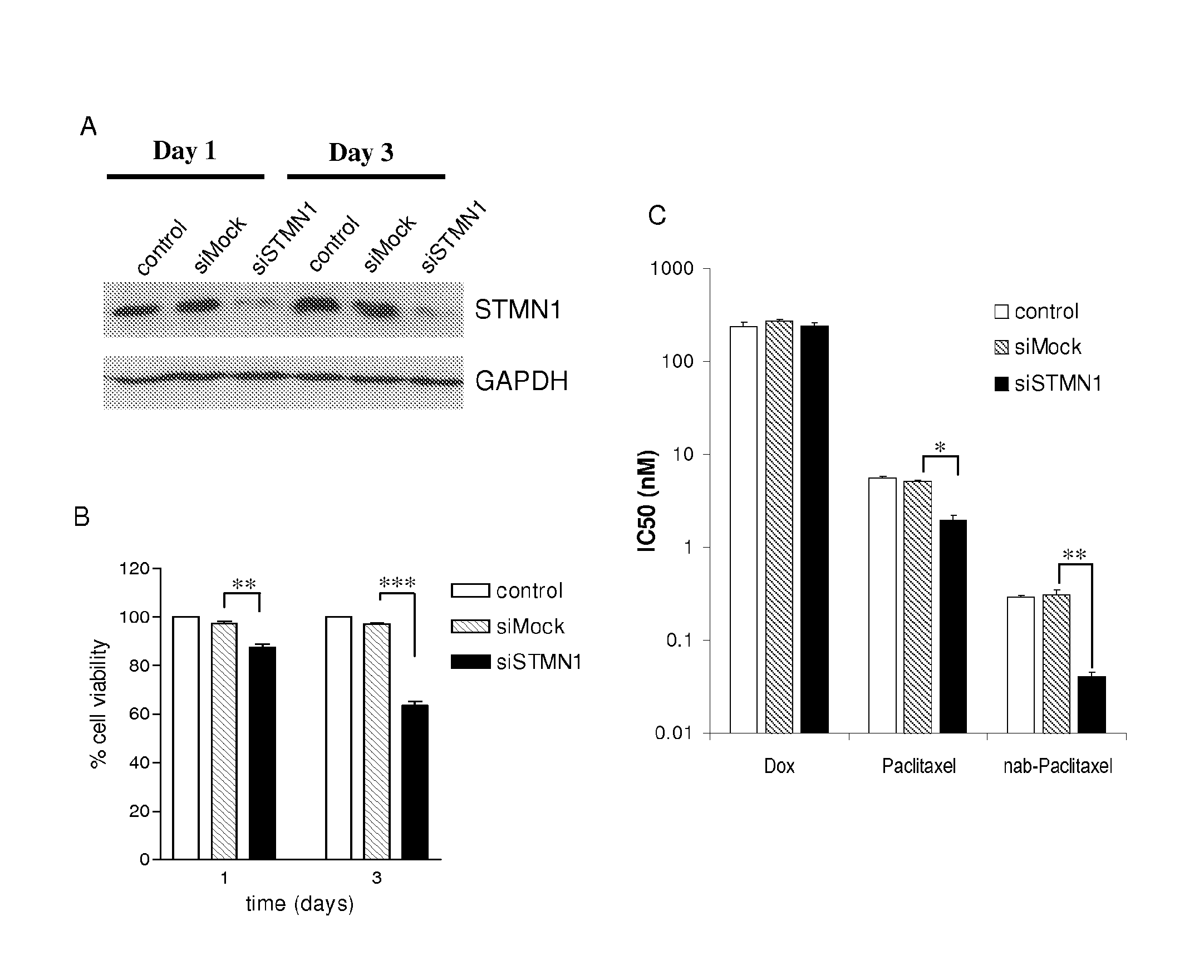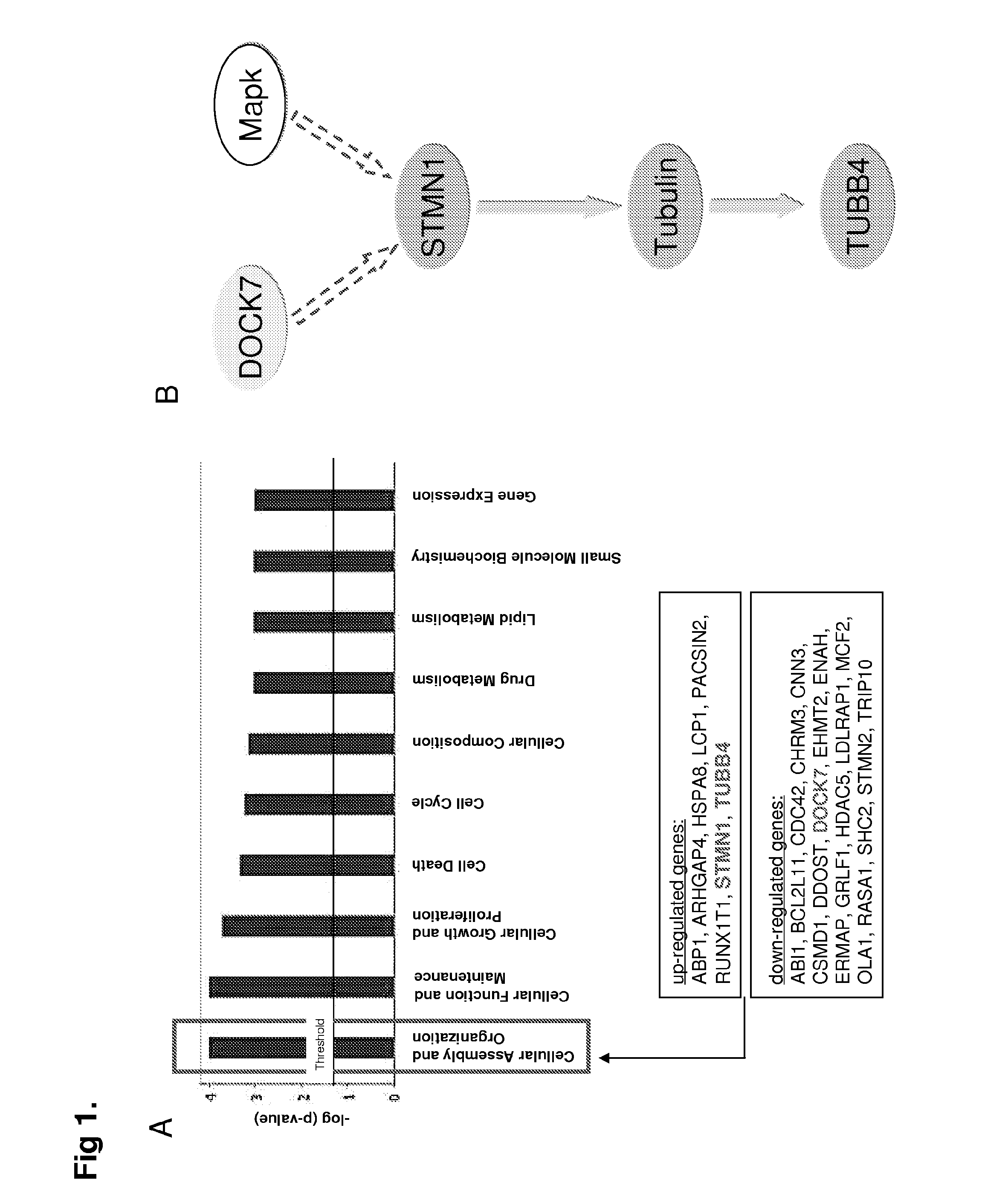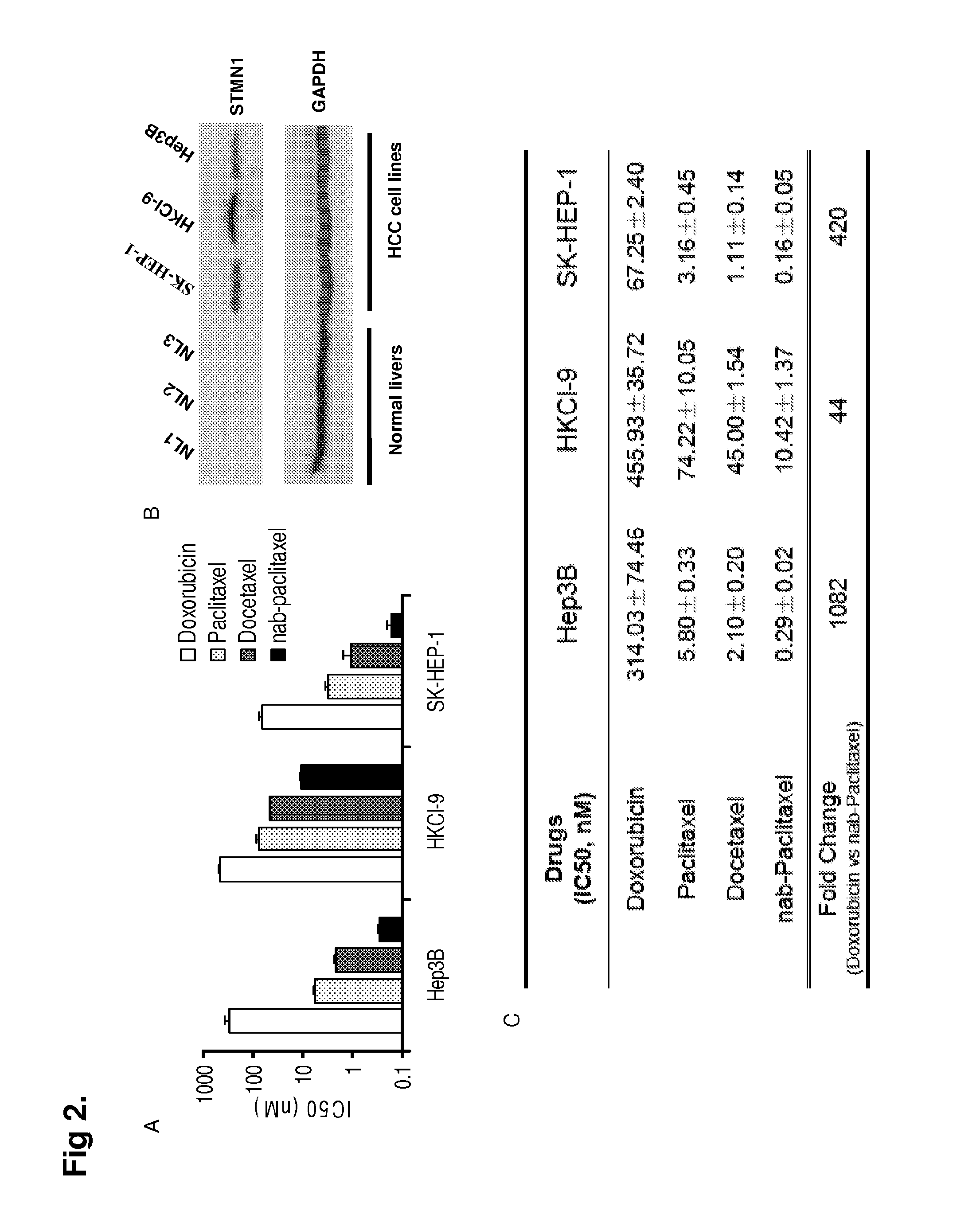Methods for treating hepatocellular carcinoma
a hepatocellular carcinoma and composition technology, applied in the field of compositions for the treatment of hepatocellular carcinoma, can solve the problems of hyper-stabilization of the microtubule structure, limited effectiveness of most chemotherapeutic agents, and inability to improve the survival rate of patients, so as to promote the assembly of microtubules, promote the activity of molecule activity, and promote the effect of microtubules
- Summary
- Abstract
- Description
- Claims
- Application Information
AI Technical Summary
Benefits of technology
Problems solved by technology
Method used
Image
Examples
example 1
Evaluation of Efficacy of Nanoparticle (Nab-Paclitaxel) in In Vitro and In Vivo Hepatocellular Carcinoma (HCC) Models
[0176]This example demonstrates the activity of Nab-paclitaxel in in vitro and in vivo HCC models.
Materials and Methods
Expression Profiling and Informatic Analysis
[0177]Gene expression profiling on 43 paired HCC tumors and adjacent non-tumoral livers was performed according to method described by Wong N. et al., Clinical Cancer Research 11:1319-26 (2005). Demographic information of cases studied is shown in Table 1. Normal liver RNA from three individuals were pooled and used as reference control in array hybridisation (Ambion, Austin, Tex.; Clontech Laboratory Inc., Palo Alto, Calif.; and Strategene, La Jolla, Calif.). Briefly, reverse-transcribed RNA from test sample and normal liver pool were differentially labelled with fluorescent Cy5-dCTP or Cy3-dCTP. Labelled cDNAs were co-hybridised onto 19K cDNA arrays (Ontario Cancer Institute, Canada). Hybridised signals ca...
PUM
 Login to View More
Login to View More Abstract
Description
Claims
Application Information
 Login to View More
Login to View More - R&D
- Intellectual Property
- Life Sciences
- Materials
- Tech Scout
- Unparalleled Data Quality
- Higher Quality Content
- 60% Fewer Hallucinations
Browse by: Latest US Patents, China's latest patents, Technical Efficacy Thesaurus, Application Domain, Technology Topic, Popular Technical Reports.
© 2025 PatSnap. All rights reserved.Legal|Privacy policy|Modern Slavery Act Transparency Statement|Sitemap|About US| Contact US: help@patsnap.com



